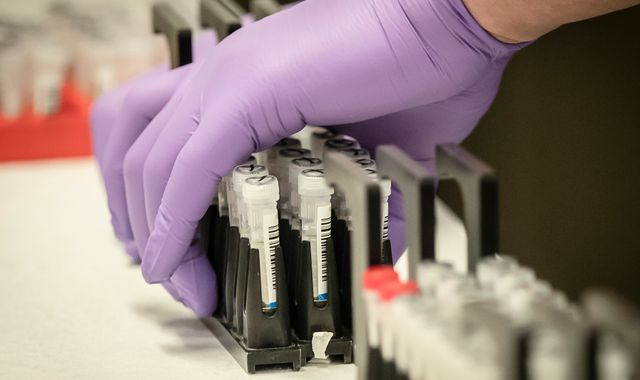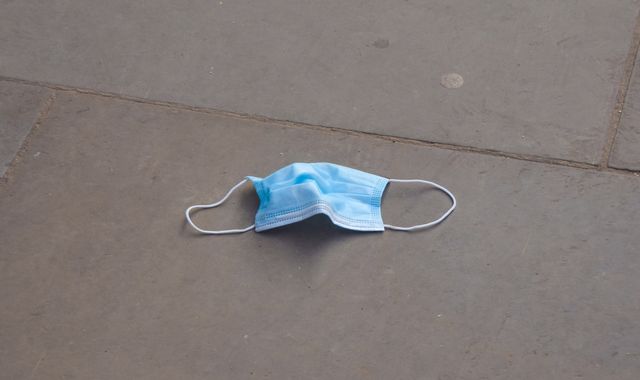Coronavirus: NHS staff first to receive ‘antigen testing’ for COVID-19
Written by News on 28/03/2020
Hundreds of frontline NHS staff will be tested this weekend to find out if they have coronavirus, as the government moves to ramp up testing for the disease among healthcare workers.


Michael Gove announced that increased “antigen testing”, developed in partnership between UK businesses, research institutes and universities, will be rolled out “immediately” to those working in hospitals and social care.
Speaking at the government’s daily coronavirus briefing, cabinet minister Mr Gove said that the testing would begin this weekend, “dramatically” scaling up next week, allowing those working in health and social care to “have security in the knowledge that they can safely return to work if their test is negative”.
“This is absolutely crucial to our response to – and fight against – coronavirus,” he added.
What is antigen testing?
Antigen testing detects whether there are antigens present in a person’s blood.
Antigens are part of the body’s immune system – they are contained within a virus and are triggered to help the body fight off infection and develop antibodies.
Antigens can be detected in blood before antibodies are made, meaning they are a much quicker way of identifying whether someone has an infection.
These tests are used to detect other viruses such as malaria and flu.
They are different from antibody tests, which can tell you whether you have already had the virus rather than if you are carrying it at the time.
Appearing alongside Mr Gove in Downing Street on Friday were NHS England chief executive Sir Simon Stevens and the deputy chief medical officer Jenny Harries.
Mr Stevens said 33,000 hospital beds across England had been made available to COVID-19 patients, with more to come as new makeshift hospitals are opened in major cities.
Work is almost complete on transforming London’s enormous ExCel Centre into the NHS Nightingale Hospital, which will house thousands of beds for coronavirus patients.
Sky News understands that Birmingham’s NEC and Manchester’s Central exhibition centres will also be converted into temporary hospitals by mid-April.
Mr Stevens said the hospital plans were part of an “unprecedented response” to the pandemic.
Regarding the increase in testing, he said: “We will be rolling out staff testing across the NHS, starting next week with the critical care nurses, other staff in intensive care, emergency departments, ambulance services, GPs.
“As testing volumes continue to increase, we want to widen that to essential public service workers, as well as our social care workers, and continue with patient testing that is so vital.”
Mr Gove led the news briefing for the first time in the absence of Boris Johnson, with the prime minister announcing earlier that he had tested positive for coronavirus and had gone into self-isolation.
Health Secretary Matt Hancock has previously stood in for the PM but was also unavailable as he is also self-isolating after testing positive, having experienced “mild symptoms” of the disease.
They both revealed that they had been diagnosed in video messages posted on Twitter on Friday morning.
There was also no sign of the government’s chief medical adviser, Professor Chris Whitty, who revealed on Friday afternoon that he is self-isolating with symptoms of coronavirus.
Chief scientific adviser Sir Patrick Vallance was also not present despite being a regular fixture of the daily briefings; however, he confirmed on Twitter that he has not been experiencing symptoms and so has not been tested.
Also on Friday afternoon, regional health bodies across the UK provided their latest figures on the number of people who had died after testing positive for coronavirus.
The total death count in the UK now stands at 769 after another 185 fatalities were confirmed.
The regional totals stand at:
- England – 689 deaths
- Wales – 34 deaths
- Scotland – 33 deaths
- Northern Ireland – 13 deaths
(c) Sky News 2020: Coronavirus: NHS staff first to receive ‘antigen testing’ for COVID-19






